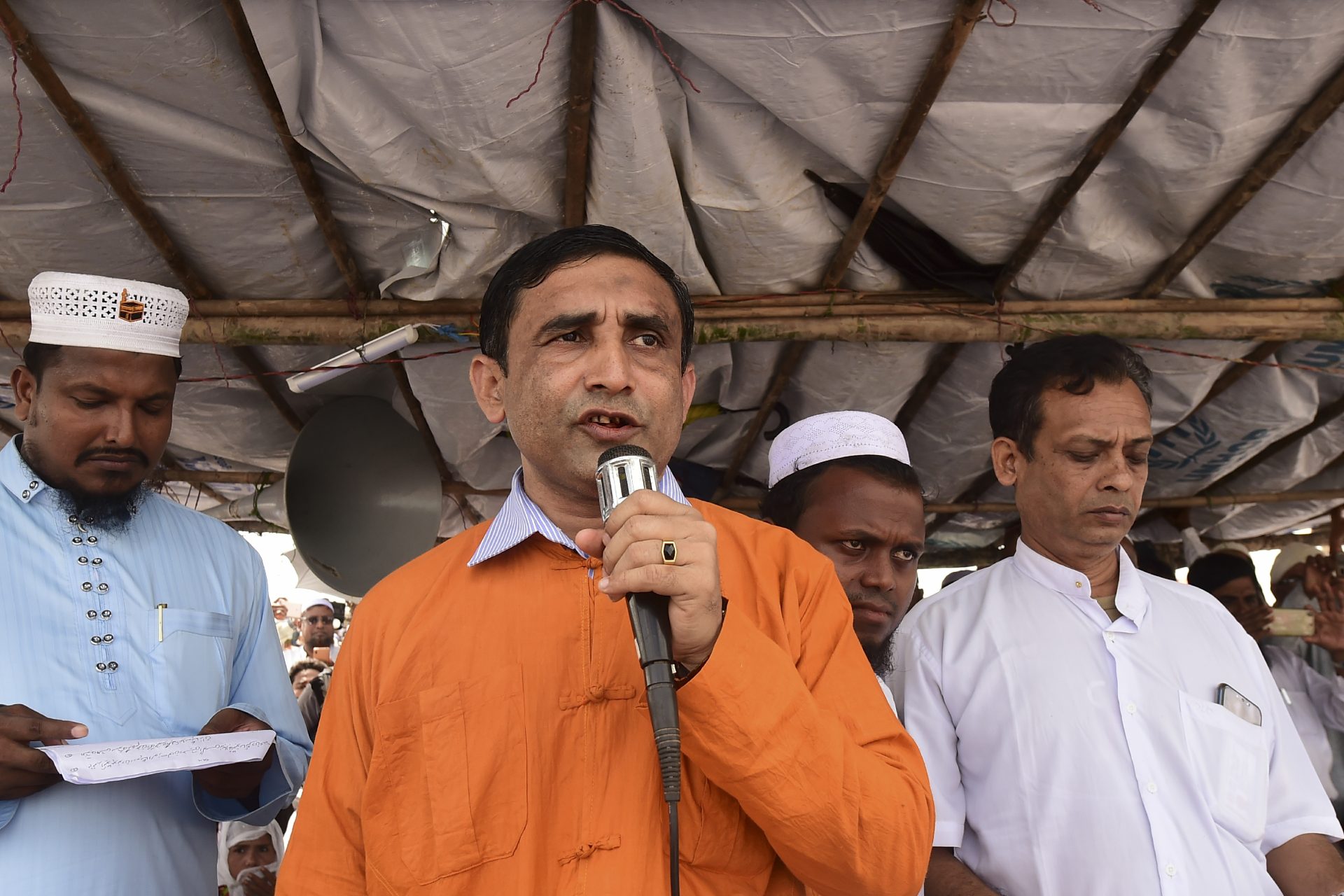Authorities in Bangladesh charged at least 29 Rohingya over the murder of community leader Mohib Ullah last September.
Ullah, the head of a Rohingya rights group, was gunned down in one of several camps in Bangladesh that together house almost a million Rohingya refugees from Myanmar, sending shockwaves through the community.
His family blamed the Arakan Rohingya Salvation Army (ARSA), an insurgent group in Myanmar’s western state of Rakhine that has been accused of running narcotics, murdering political opponents and instilling a climate of fear in the camps.
Prosecutor Faridul Alam told AFP on June 13 that police have completed their probe and filed a charge sheet against 29 Rohingya for the murder of the 48-year-old.
“Out of the 29, police have arrested 15 people and the rest are absconding. At least four of those arrested have made confessional statements over their roles in the murder,” said Alam.
He said police did not directly hold ARSA responsible for the murder but added that “those who opposed repatriation [of the Rohingya back to Myanmar] killed Mohib Ullah. Some of them [who are charged] are members of ARSA.”
The former schoolteacher shot to prominence in 2019 when he organized a protest of about 100,000 people to mark two years since their exodus
ARSA has denied any involvement in Ullah’s killing.
About 920,000 Rohingya refugees live in camps in Bangladesh, most of whom fled a military onslaught in Myanmar in 2017 that the United States has designated an act of genocide.
Working in the camps, Ullah and his colleagues quietly documented the crimes that his people suffered at the hands of the Myanmar military while pressing for better conditions.
The former schoolteacher shot to prominence in 2019 when he organized a protest of about 100,000 people to mark two years since their exodus.
He also met then US president Donald Trump in the White House that year and addressed a UN meeting in Geneva.
After the murder, members of Ullah’s family took shelter in a UN-run transit camp and in April they were relocated to Canada.







